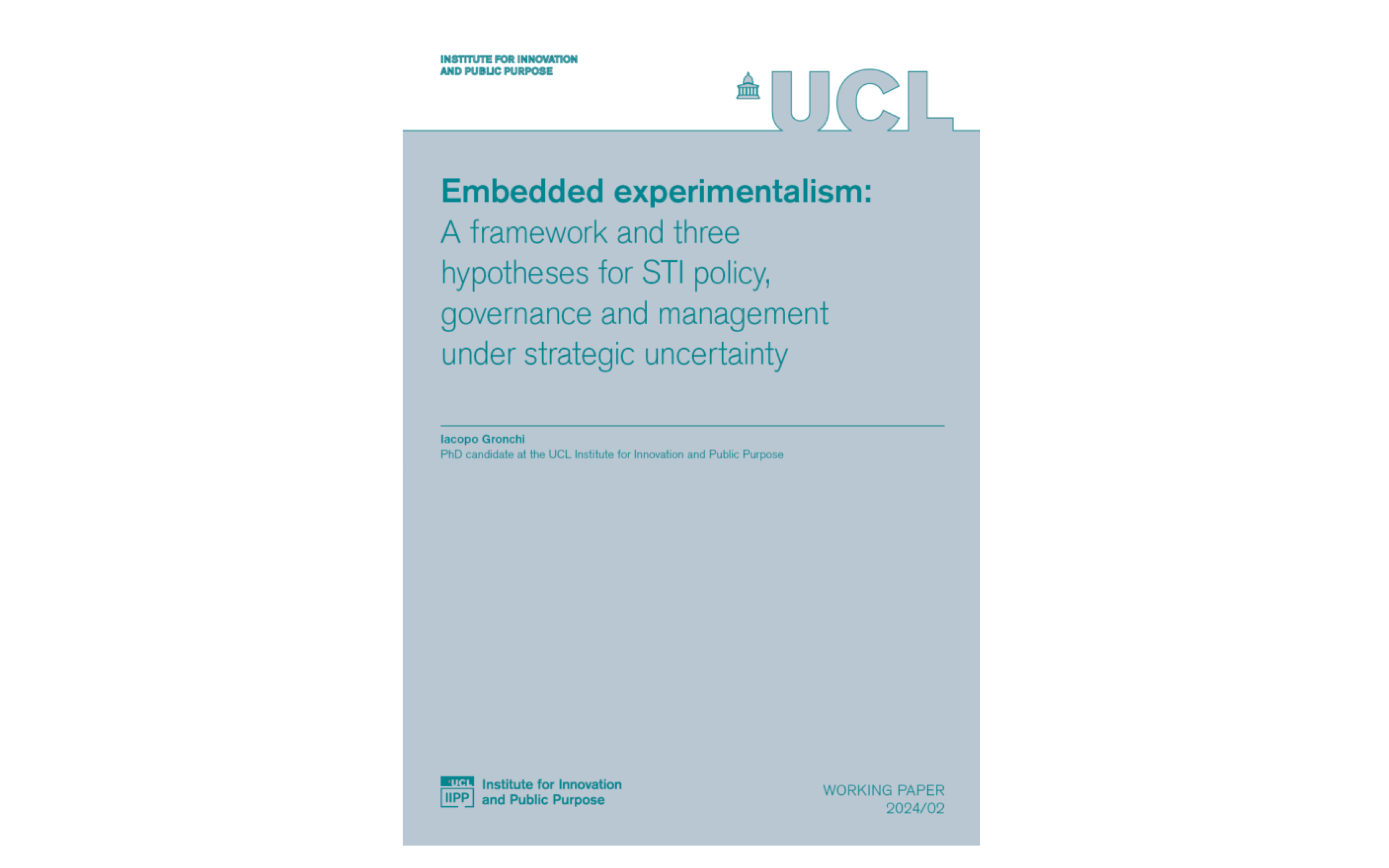Embedded experimentalism: A framework and three hypotheses for STI policy, governance and management
Authored by Iacopo Gronchi

29 February 2024
UCL Institute for Innovation and Public Purpose (IIPP) Working Paper Series: IIPP WP 2024-02
Embedded experimentalism: A framework and three hypotheses for STI policy, governance and management
Authors:
- Iacopo Gronchi | PhD student | UCL Institute for Innovation and Public Purpose (IIPP)
Reference:
Gronchi, I. (2024). Embedded experimentalism: A framework and three hypotheses for STI policy, governance and management under strategic uncertainty. UCL Institute for Innovation and Public Purpose, Working Paper Series (IIPP WP 2024-02). Available at: https://www.ucl.ac.uk/bartlett/public-purpose/embedded-experimentalism/WP2024-02
Abstract:
This paper explores the need, challenges and opportunities for STI research and practice to advance the cross-fertilization of innovation, governance and strategic public management studies. It argues that the effective implementation of emerging forms of STI policy – mission-oriented, transformative and Partnerships for Regional Innovation – relies on the ability of public managers to ‘embed experimentalism’ (EE) in their operating context. Based on a problematising literature review, the concept of EE is advanced as a unifying framework to analyse and devise forms of managerial deliberation, organisational structures and incentives for collective action that can fit and transform different institutional contexts under conditions of strategic uncertainty. The EE framework and its three hypotheses are then tested in three cases: the US’ DARPA’s operations; China’s Torch programme; and the EU’s RIS3 policy. Overall, this paper aims to open new avenues for STI research and practice to support attempts at tackling urgent societal challenges, such as industrial decarbonisation.
 Close
Close

